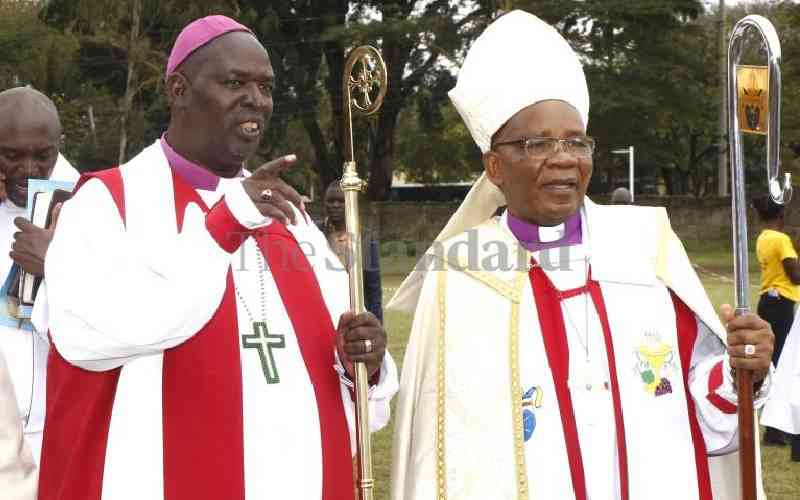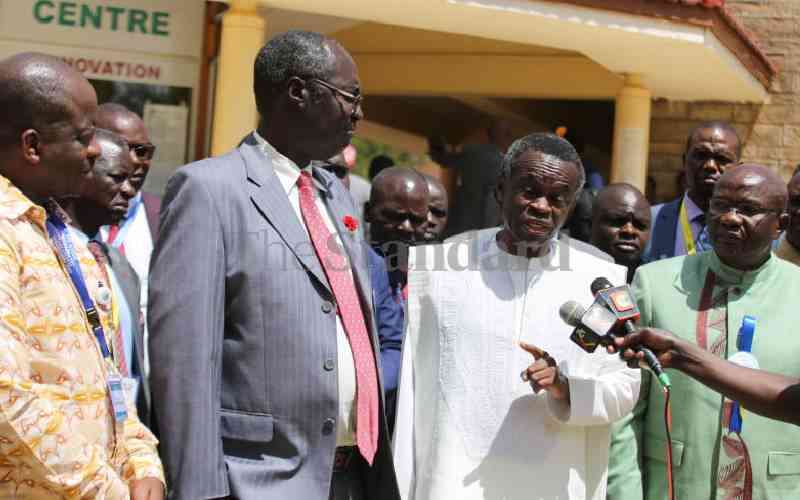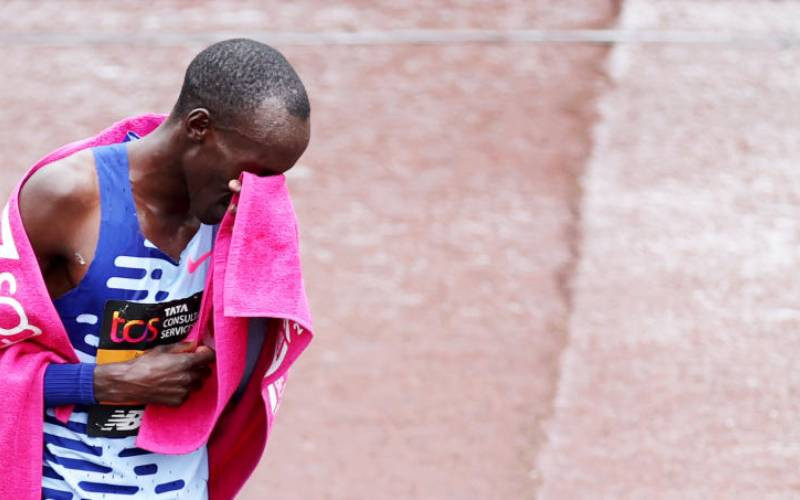By Makau Mutua
Iconic German economic and political philosopher Karl Marx once opined that “religion is the opium of the masses”.
You don’t have to be an atheist, or an agnostic, to see the wisdom in Mr Marx’s jarring commentary. Since religion is based on faith – and not science – it’s not always rational.
Obedience to faith is blind, and requires the suspension of reason. That’s why Pope Francis is such a breath of fresh air – the first Latin Sovereign of Vatican City – has lit the Catholic Church on fire. The man born as Jorge Mario Bergoglio in Buenos Aires, Argentina, has declared several of the Church’s teachings as “heresies”. The most significant of these is the official Catholic view on homosexuality.
Strangely, while the Catholic Church appears to be finally “seeing the light,” a benighted group of Anglican Bishops is determined to turn the clock back. Meeting in Nairobi a couple of weeks ago, a rebellious group calling itself the Global Anglican Future Conference, or Gafcon, threatened to overthrow the Archbishop of Canterbury, the overall leader of the global Anglican communion.
The group of 331 of the 871 bishops of the global Anglican clergy – drawn from Africa, Latin America, Caribbean, and Australia – accused Archbishop Justin Welby of Canterbury of ordaining gay bishops and recognising gay marriage.
Their beef with Canterbury is that the gospel should be taught according to Scripture, not “culture”. They vowed to “re-evangelise” the West, which has “gone astray”.
Gafcon is clearly living in the past. Its opposition to gay rights smacks of an “ungodly” departure from the march of history and the inevitability of equality for all. Archbishop Desmond Tutu, the retired Anglican prelate – easily the world’s most famous Anglican elder – is a vigorous advocate for gay rights, including homosexual marriage.
Archbishop Tutu has openly stated – and Pope Francis repeatedly said – the mission of Christianity must be to care for the poor, the sick, and the marginalised. Both spiritual leaders believe that the Church must not be held hostage by haters who focus on divisive flashpoints like gay rights, abortion, and contraceptives.
As Archbishop Tutu observed, let’s not be obsessed with what consenting adults do in their bedroom.
Pope Francis is set to reverse centuries of blind intolerance, misogyny, and useless “culture wars” that have made the Catholic faith the bastion of bigotry. He’s the right man for the job, and the historic moment. His predecessor, the retired Pope Benedict, was too blinded by inflexible religious doctrine to recognise history’s knock on the door. He fruitlessly railed against Spain when it allowed gay marriage.
In contrast, Pope Francis said not a word when France became the largest predominantly Catholic country to permit gay marriage. Apparently he was too busy washing the feet of the poor to tweet. You’ve got to admire Pope Francis because he “gets it”. The Church needs him to “modernise” to survive.
This brings me back to Gafcon and Archbishop Eliud Wabakula, the leader of Kenyan Anglicans who chaired the meeting. He strongly endorsed Gafcon’s intolerance and discriminatory doctrine against gays.
What Archbishop Wabakula fails to get, like his fellow travellers in Gafcon, is that globally the ground has shifted on gay rights. Nary a year goes by without one more country, or state, decriminalising gay sex and permitting gay marriage.
The real estate on which homophobes stand is shrinking fast. Like racists, misogynists, sexists, and assorted bigots, homophobes will soon become a loud and disgraced minority.
Stay informed. Subscribe to our newsletter
The bell for full gay rights has been rung, and it can’t – and won’t – be unrung. Are the old men in Gafcon listening?
In Kenya, Archbishop Wabakula is best advised to re-read the Constitution. The charter’s basic equality provisions outlaw discrimination of any kind, including the unequal treatment of gays.
Its marriage and family provisions nowhere prohibit gay marriage. It doesn’t criminalise gay sex, or homosexual relationships. Private institutions like churches, mosques, and synagogues shouldn’t – and aren’t – exempt from the anti-discrimination provisions of the Constitution.
They can’t be free zones of sexual or gender apartheid. Religions must comply with the law to enjoy the tax-exempt benefits of the state. Prohibiting the ordination of women, or gays, isn’t different from refusing to ordain blacks.
The equal protection provisions of the Constitution don’t stop at the doors of the church, mosque, and synagogue.
I will close with reference to Pope Francis. I strongly believe in religious freedom. But I also believe that religions can’t be allowed to remain havens of bigotry. Religion should be part of freeing humanity, not tyrannising those who aren’t male, white, wealthy, straight, and unmarried.
The basic mission of the Church ought to be social justice, as Pope Francis has emphasised. That’s the lesson I take from Jesus. The man from Judea and Nazareth was a social activist who would’ve embraced gays and gay rights.
 The Standard Group Plc is a
multi-media organization with investments in media platforms spanning newspaper
print operations, television, radio broadcasting, digital and online services. The
Standard Group is recognized as a leading multi-media house in Kenya with a key
influence in matters of national and international interest.
The Standard Group Plc is a
multi-media organization with investments in media platforms spanning newspaper
print operations, television, radio broadcasting, digital and online services. The
Standard Group is recognized as a leading multi-media house in Kenya with a key
influence in matters of national and international interest.
 The Standard Group Plc is a
multi-media organization with investments in media platforms spanning newspaper
print operations, television, radio broadcasting, digital and online services. The
Standard Group is recognized as a leading multi-media house in Kenya with a key
influence in matters of national and international interest.
The Standard Group Plc is a
multi-media organization with investments in media platforms spanning newspaper
print operations, television, radio broadcasting, digital and online services. The
Standard Group is recognized as a leading multi-media house in Kenya with a key
influence in matters of national and international interest.








